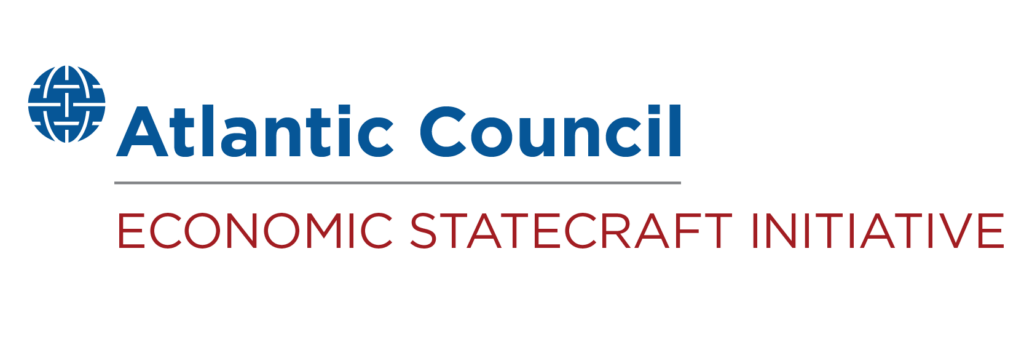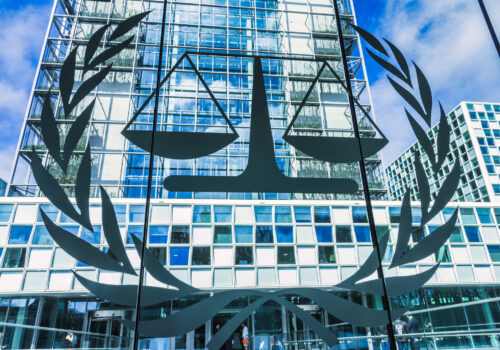Can the EU leverage economic pressure to broker a Gaza cease-fire?
The ongoing Israel-Gaza war has evolved into a highly politically complex and dire humanitarian conflict. With thousands of civilian casualties reported, the majority in Gaza, international calls for a cease-fire are intensifying. Efforts to broker a resolution have largely centered on US-led diplomacy, with most recent efforts including White House envoy Steve Witkoff’s new proposal aimed at securing a cease-fire and hostage release. Yet negotiations remain deadlocked following the collapse of a truce in March over Israeli demands for Hamas to disarm and for its leaders to go into exile. Qatari Prime Minister Sheikh Mohammed bin Abdulrahman Al Thani, a key mediator, described the talks in Doha as hampered by “fundamental differences between parties.”
As diplomatic efforts falter, attention is turning to economic statecraft—the strategic use of trade and economic leverage to influence state behavior. The European Union (EU) and United States are Israel’s largest and second-largest trading partners, and any economic pressure they apply could have severe consequences for Israel’s economy. Already facing tariffs from the US, Israel may soon encounter additional pressure from the EU, which is considering its own economic measures.
In Europe, growing humanitarian concerns about the scale of destruction in Gaza have prompted calls to reevaluate the best strategy to manage the conflict. Notably, the humanitarian blockade and high-profile incidents, such as the deaths of fifteen aid workers during an Israeli special forces operation in Rafah—an event Israel attributed to “professional failures”—have intensified pressure for a more impactful response. There is a growing sentiment that new tools may be needed to influence the trajectory of the conflict.
Recently, Dutch Foreign Minister Casper Veldkamp called on the EU to investigate Israel’s compliance with Article 2 of the EU-Israel Association Agreement, which ties trade relations to respect for human rights and democratic principles. Veldkamp argued that, “The blockade violates international humanitarian law. You have the right to defend yourself, but the proportions now seem completely lost. We are drawing a line in the sand.”
Although Veldkamp faced domestic political backlash for his move, support across Europe appears to be growing. On May 20, the governments of the United Kingdom (UK), France, and Canada issued a joint statement urging Israel to halt its renewed offensive in Gaza. While reaffirming Israel’s right to defend itself, the statement described the current escalation as “wholly disproportionate.” In tandem, the UK suspended talks on expanding a free-trade agreement with Israel and announced additional sanctions on extremist Israeli settlers in the West Bank.
Crucially, the majority of EU foreign ministers backed the Dutch proposal to review the EU-Israel Association Agreement. Their choice signals a potential turning point: the first serious momentum behind reevaluating a trade framework that underpins diplomatic and economic ties. Should the EU find Israel in breach of Article 2, it could suspend parts of the agreement or enact targeted economic penalties.
The implications are substantial. The EU is Israel’s largest trading partner, accounting for 32 percent of Israel’s total trade in goods as of 2024, amounting to $48.25 billion. Services trade added another $29 billion, while bilateral foreign direct investment stands at over $134.8 billion. This underscores a deeply integrated economic relationship.
Despite the ongoing conflict, Israel has so far managed to maintain some level of macroeconomic stability. Debt levels are within sustainable bounds, credit worthiness remains intact, and the economy has continued to grow (albeit slowly). However, the economic toll of war is has been straining certain sectors disproportionately. The tech industry continues to grow, partially due to defense contracts, but construction has largely halted, agricultural sectors have lost critical labor, and tourism has plummeted. While gross domestic product growth has not entirely contracted, it slowed to around 1 percent in 2024. This was a significant drop from 6.5 percent in 2022, with the deceleration primarily driven by reduced exports. In response, the Israeli government has implemented budget adjustments that include cuts to domestic welfare programs—historically an area of generous spending—as it works to offset growing wartime expenditures.
Compounding these challenges, Prime Minister Netanyahu recently announced plans to eliminate Israel’s trade surplus with the United States—its second-largest trading partner—which amounted to $7.4 billion in 2024. While the move is framed as a gesture toward economic rebalancing and strengthening bilateral ties, it may carry domestic economic consequences. Efforts to narrow this surplus—especially in a climate of shifting global trade patterns and economic uncertainty—could dampen Israeli export growth and further expose the economy to external shocks.
The potential suspension or downgrading of EU-Israel trade ties would add significant pressure. Given the scale and interdependence of EU-Israel trade, such a move could affect Israel’s economic resilience and, by extension, its ability to sustain long-term military operations in Gaza.
While no approach guarantees a swift end to such a deeply entrenched conflict, economic statecraft presents a credible alternative to stalled diplomatic channels. Unlike traditional negotiations, which often falter due to uncompromising demands or ideological impasses, economic levers could alter the cost-benefit calculus of continued hostilities. A concerted and coordinated effort by major economic partners could incentivize compromise, creating a window for diplomacy to succeed.
The EU’s evolving posture may represent a strategic recalibration—one that leverages economic influence to encourage de-escalation while remaining anchored in international law and human rights norms. Whether this shift can yield tangible results remains to be seen, but it marks an important recognition: that intractable conflicts may require not just moral outrage or political pressure, but a strategic application of economic power.
Lize de Kruijf is a project assistant at the Atlantic Council’s Economic Statecraft Initiative.
Related content

Economic Statecraft Initiative
Housed within the GeoEconomics Center, the Economic Statecraft Initiative (ESI) publishes leading-edge research and analysis on sanctions and the use of economic power to achieve foreign policy objectives and protect national security interests.
Image: Stock market investment trading financial, coin and Israel flag or Forex for analyze profit finance business trend data background.


